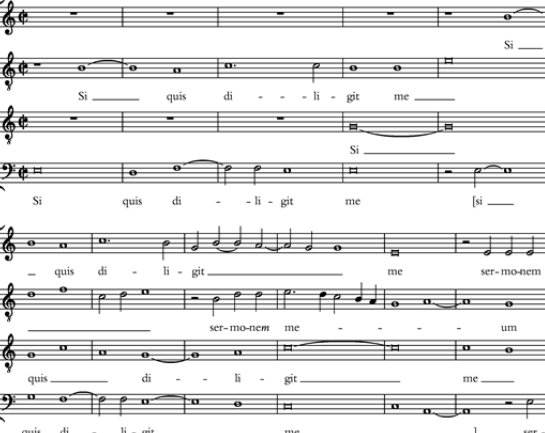A groundbreaking discovery has been made in Scotland, where researchers uncovered a fragment of “lost” music embedded in the pages of the country’s first full-length printed book. This 500-year-old musical score is shedding light on the sounds of pre-Reformation Scotland and providing new insights into the country’s rich religious and musical traditions.
A Rare Find in The Aberdeen Breviary
The discovery was made in The Aberdeen Breviary, a book first printed in 1510. This book, a collection of hymns, psalms, prayers, and saintly biographies, was used for daily worship in Scotland. The music fragment was found in a copy of the Breviary known as the “Glamis copy,” currently housed in the National Library of Scotland. Scholars from Edinburgh College of Art and KU Leuven in Belgium analyzed the fragment, which contained just 55 notes.
This score, which survived the passage of time, is a rare example of music from Scottish religious institutions. Notably, it is the only surviving piece of music from northeast Scotland dating back to the early sixteenth century.

The Significance of the Score
The researchers were initially puzzled by the fragment of music, which had no text, title, or attribution. However, after detailed investigation, they identified it as a unique polyphonic harmonization of the night-time hymn Cultor Dei, sung during Lent. Polyphonic music, where multiple melodies are sung or played simultaneously, was common in Scottish religious settings, but few examples have survived.
The researchers also discovered that the music was written in the tenor part of a faburden, a type of three- or four-voice harmonization popular in the period. The team believes that this fragment was likely linked to St Mary’s Chapel in Rattray and Aberdeen Cathedral, two important religious sites in the region.
The Role of Marginalia in Musical Research
The discovery highlights the importance of marginalia—annotations made in the margins of books—as a valuable source of historical information. The music fragment was found on a blank page in the Glamis copy, which was originally printed without any music. This suggests that the writer intended to preserve both the music and the book together, offering a glimpse into the musical practices of the time.
This fragment opens the door to further discoveries in the margins and blank pages of other sixteenth-century books. The researchers emphasize that much more may be hidden in the archives of Scotland’s libraries and could provide valuable insights into the country’s cultural history.
A Window into Pre-Reformation Scotland’s Musical Tradition
This discovery challenges the long-held belief that pre-Reformation Scotland lacked a rich musical tradition. Although much of Scotland’s religious and musical heritage was destroyed during the Reformation, the Aberdeen Breviary and its associated music show that there was, in fact, a strong tradition of high-quality music-making in Scottish religious institutions.
James Cook, a researcher at Edinburgh College of Art, stated, “Our work demonstrates that despite the upheavals of the Reformation, there was a strong tradition of high-quality music-making in Scotland’s cathedrals, churches, and chapels, just as anywhere else in Europe.”
Tracing the History of the Aberdeen Breviary
Beyond its musical significance, the Aberdeen Breviary also provides a fascinating glimpse into its own history. Once used as the private service-book of the illegitimate son of a high-ranking chaplain at Aberdeen Cathedral, it later became a cherished heirloom. The book’s journey through time reflects the turbulent religious history of Scotland, from the pre-Reformation era to the post-Reformation period.
The Glamis copy was passed through various hands, eventually reaching a Scottish Catholic who traveled from post-Reformation Scotland to the Habsburg and Ottoman Empires. This journey highlights the book’s cultural and religious significance over the centuries.


















